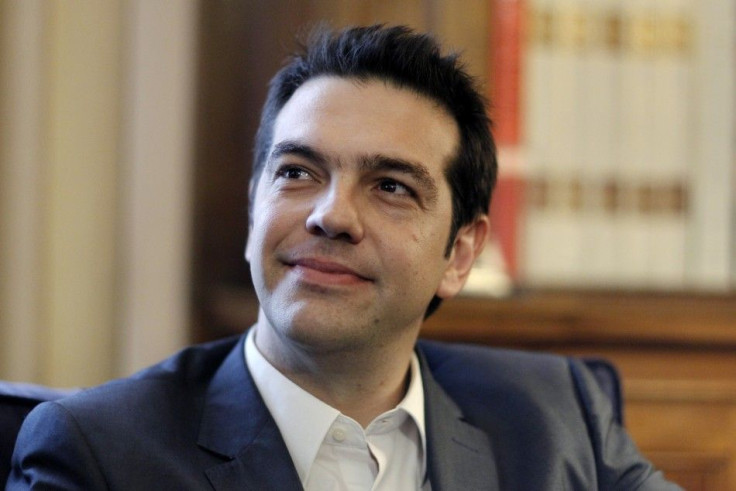Greece: Leftist Parties Seek To Form Coalition; Failure Might Prompt Snap Election

After conservative leader Antonis Samaras failed to form a coalition government in the wake of Sunday's fractured Greek elections, now comes the leftists’ attempt to forge such an alliance.
Syriza, an umbrella of left-wing organizations that are vehemently opposed to the euro zone bailouts and subsequent austerity programs in Greece, scored a surprisingly strong second-place finish in parliamentary elections with a 16.8 percent showing, just behind Samaras’ New Democracy party, which gained 18.9 percent.
As such, Syriza leader Alexis Tsipras now becomes a key player in this seemingly endless Greek saga. Tsipras has called the austerity measures imposed upon the Greek public as “barbaric” and vowed to eliminate them.
We will exhaust all possibilities to reach an understanding, primarily with the forces of the left, Tsipras said.
Meeting with President Karolos Papoulias on Tuesday, Tsipras will have three days to form a coalition. He is expected to first meet with the leader of the Democratic Left, Fotis Kouvelis, whose party gained 6.1 percent of Sunday’s vote.
Tsipras is expected to eventually meet with most other party chiefs, with the exception of the extreme right-wing Golden Dawn party, which scored an impressive 7 percent of the vote. (Samaras also refused to meet with Golden Dawn officials).
However, despite the popularity of anti-austerity movements in France and elsewhere, Tsipras may find it just as difficult as Samaras did to find common ground with a bewildering variety of Greek political parties (seven such parties gained at least 6 percent of the vote in Sunday’s election).
The former coalition partners in Greece -- ND and the Socialist Pasok party -- performed so poorly in the election (with a combined vote tally of only 32 percent) that it became impossible for them to regain their power in government.
Pasok, which lost a lot of support due to its close identification with Greece’s economic travails, is the only party that strongly endorses the bailouts and related austerity schemes.
However, in the event that Tsipras fails to create a coalition, Pasok (as the next most successful party in the election) will give it a go.
Evangelos Venizelos, the Pasok leader and former finance minister, said leftist groups should be part of any coalition.
It is necessary for the government of national unity to include all the forces that have a pro-European outlook, he said.
The minimum level of agreement is that Greece remains in the euro.
If Pasok fails to form a coalition, another round of elections may ensue as early as next month – a development that the euro zone ministers and especially Germany would not happily accept.
Chancellor Angela Merkel has already warned Greece it must abide by the terms of austerity.
If Greek political parties fail to come to some kind of compromise, the country may be unable or unwilling to abide by the terms of the two EU/IMF loans. In exchange for a total of 240 billion euros ($312 billion) in rescue funds, Athens had agreed to a painful program of job cuts, spending reductions, tax hikes and salary/pension freezes.
Of greater urgency, Athens needs to find another 11 billion euros ($14.3 billion) of cuts next month, or the government may default on the bailout loans, leading to a possible exit from the euro zone.
The next installment of 30 billion euros in EU/IMF loans is also scheduled to be delivered next month.
Fears are growing that Greece may have to exit the euro, regardless of how the political dramas in Athens play out.
Guillaume Menuet, an economist at Citi, warned there is a significant potential for Greece to miss its next round of budget deficit targets and a 50-to-75-percent chance of what he described as a Grexit within 12 to 18 months.
IHS Global Insight country analyst Blanka Kolenikova and economist Diego Iscaro commented that “Greece remains in serious political deadlock at a time when it needs political stability the most.”
They added, however, that exiting the euro zone would not solve Greece's economic ills.
“Indeed, the impact of such scenario could be dramatic,” they said.
“Worryingly, the uncertain political situation in Greece, combined with a dire economic situation and a tough stance by official creditors, means that the probability of this extreme outcome cannot be ignored, and political developments over the coming weeks and months will determine whether Greece will continue to be part of the euro zone or not.”
© Copyright IBTimes 2024. All rights reserved.





















